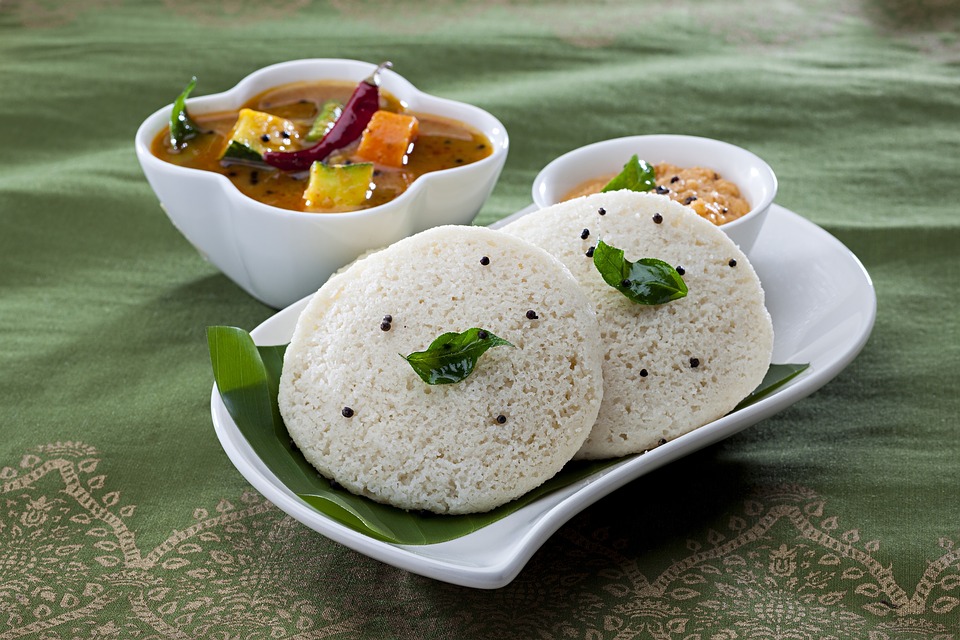Every state of India has its own variety. Indian foods have a reputation of being very spicy, oily, and something that is slowly digested. While Westerners may believe all they want, this is not true. When it comes to embracing the benefits of Ayurveda, watching what you eat is possibly the best way to start.
Food is responsible for biological functions through dietary components in the human body. Indian traditional foods are also recognized as functional foods because of the presence of functional components such as body-healing chemicals, antioxidants, dietary fibers, and probiotics. Traditional Indian meals include carbohydrates, proteins, fats and fibres, all of which are elements that you need for a balanced diet. According to ayurveda, food is responsible for different aspects of an individual including physical, temperamental, and mental states.
Usually, people think that healthy food cannot be tasty. Busting this myth, we list here Indian origin ayurvedic Foods that are healthy and delicious at the same time.
1. Idli: Idli is a steamed cake made from rice and black lentils originating from Southern India. Fermentation of idlibatter improves the nutritional and protein efficiency value. Each idli contains just 39 calories, which is a minimal amount in comparison to a healthy 2,000-calorie daily diet. Idlis contain no fat, no saturated fat and no cholesterol. Probiotic microorganisms such as Lactobacillus plantarum and Lactobacillus lactis are also present in idli batter.
2. Dhokla:

Dhokla is indigenous probiotic breakfast food found mainly in Gujarat state. The fermentation of the dal enhances its nutritive value of dhoklas making them rich in fibre and protein. The antioxidant property of dhokla helps in the reduction of oxidative stress which prevents from the diseases
3. Dosa:

Dosa is another fermented dish which is mainly found south India. Dosas are thin, crepe-like pancakes native to India. Unlike traditional American pancakes, dosas are made from lentil and rice batter rather than wheat flour. Dosa is a rich and healthy source of carbohydrates. It provides your body with the energy needed to carry out various functions. An 86 g serving of dosa provides 162 calories, which is just 8 percent of the daily recommended intake of 2,000.
4. Selroti:

Credit: youtube
Selroti is an ethnic fermented rice food of the Himalayas. It is a popular fermented rice product that is ring shaped, spongy, pretzel-like, and deep-fried food . It is consumed in Sikkim and Darjeeling. Soaked rice is pounded into rice flour and mixed thoroughly with about 25% refined wheat flour, 25% sugar, 10% butter or fresh cream, and 2.5% spices/ condiments containing large cardamom, cloves, coconut, fennel, nutmeg, and cinnamon. Selroti has good amount of digestible proteins and probiotics like Lactobacilli, Pediococci, Enterococci, and Leuconostocsare.
5. Dahi (Indian yoghurt/curd):

Credit: Indiamart
Curd is an essential part of the recommended healthy Indian diet. It is a naturally fermented milk product obtained from boiled cow or buffalo milk and soured using mixed lactic cultures. It is used in daily diet as a potential source of B-complex vitamins, folic acid, and riboflavin. A cup of plain, low-fat yogurt contains 154 calories, with 13 grams of protein, 3.8 grams of fat and 17 grams of carbohydrates. The glycemic index of plain, low-fat yogurt is just 14, which is very low.
6. Paneer:

Credit: curry-pot
Paneer, a popular indigenous dairy product of India, is similar to an unripened variety of soft cheese which is used in the preparation of a variety of culinary dishes and snacks. It is obtained by heat and acid coagulation of milk, entrapping almost all the fat, casein complexed with denatured whey proteins and a portion of salts and lactose. Paneer being made from milk is very rich in proteins and calcium.
7. Lassi :

Credit: Indiamart
Lassi is traditional milk beverage which is loved by many people across India. Made by churning curd, lassi is thickened to a cream consistency and then topped with additional flavours. There are 79 calories in 100 ml of Lassi. It contain 25% fat, 64% carbs, 12% prot. Lassi is a probiotic product due to the presence of L. acidophilus, and S. thermophiles as active cultures.
8. Jaljira juice:

Credit: Indiamart
Jaljeera, a refreshing and natural drink, can help to fight intestinal gas and poor digestion. Jaljeera contains black salt, which is good for digestion. It helps in heartburns, relieves from intestinal gas and rehydrates the body. As it has dry mango or ‘amchoor’ powder, which is high in vitamin C, helps to improve immunity and keeps scurvy at bay. There are 7 calories in I glass jaljira. It contain 67% fat, 33% carbohydrates and 0% protein.
9. Mustard greens/Saag:

Credit: indoamerican-news.com
Saag is a leaf-based dish prepared in the north east part of India. Sarson ka Saag tastes best with makki ki roti, home-made white butter, and jaggery. Mustard greens supply the greatest amounts of three powerful antioxidants: vitamin K, vitamin A and vitamin C. Mustard greens are not only a good source of iron, but they are also rich in calcium, magnesium, zinc, potassium and manganese. Adequate amount of fibre in our diet makes the bowel movement easier, thus aiding digestion, and helps in protecting from problems like constipation and colon cancer.
10. Bael Juice:

Credit: news48tv.com
Bael fruit (Aegle marmelos) is grown in wild areas of India. Bael, also known as bilwa is a vital tree in Indian culture which is mostly planted around temples. The Hindus consider it to be holy as it holds great significance related to Lord Shiva and his wife Parvati. It is mentioned in the Ayurveda too, where it is written that every part of the tree (seeds, root, fruit, bark and leaves) have numerous medicinal properties. The juice of the fruit is considered to be good for gastrointestinal problems, peptic ulcer, jaundice, obesity and gynecological disorders.
Source: healthyeating.sfgate.com, livestrong.com, rediff.com, food.ndtv.com, Sarkar et al 2015. Traditional and ayurvedic foods of Indian origin. Journal of Ethnic Foods. https://doi.org/10.1016/j.jef.2015.08.003
